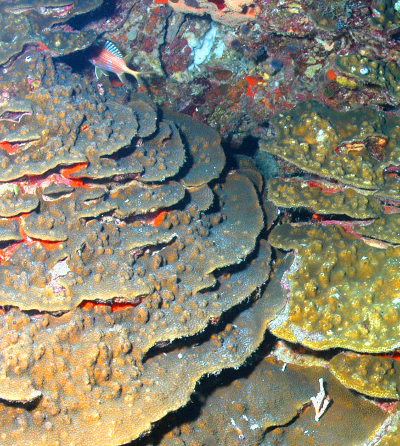Reef risks updated
 Two new studies show coral reefs in serious danger.
Two new studies show coral reefs in serious danger.
New research published in Ecology Letters reveals that deadly coral disease is rapidly spreading due to global warming, with the likelihood of becoming endemic to reefs worldwide by the end of the century.
The study conducted by UNSW Sydney involved analysing 108 coral health surveys in relation to ocean sea surface temperature records to understand the impact of climate change on coral disease prevalence.
The findings indicate that coral disease has tripled over the past 25 years, reaching a global average of 9.92 per cent.
Disturbingly, modelling projections indicate that this prevalence could skyrocket to 76.8 per cent by 2100 if temperature trends persist.
Lead author Samantha Burke says it shows the urgent need for action to combat climate change, stating that coral disease will worsen even under conservative warming scenarios.
The study also suggests that the Pacific Ocean is particularly at risk compared to the Atlantic and Indian Oceans.
Burke acknowledges the complexity of determining the causes of coral disease but highlights the indisputable fact that its prevalence is increasing globally.
Coral reefs are crucial to marine ecosystems, supporting a quarter of the world's fish populations and serving as a vital resource for coastal communities reliant on fishing and tourism.
The destruction of coral reefs not only endangers biodiversity but also removes vital storm protection and coastal erosion prevention mechanisms.
Coral disease occurs when the coral's immune system is compromised, making it susceptible to infections from pathogens such as bacteria and fungi.
Rising ocean temperatures intensify coral stress levels, decreasing immune response and potentially favouring disease-causing organisms.
Additionally, another study published this week suggests that coral restoration efforts will likely fail unless climate change and other human-induced impacts are addressed.
The focus should be on reducing greenhouse gas emissions and other drivers of reef degradation to bolster ecosystem resilience.
It says that while small-scale coral restoration projects may be feasible in areas of high economic value, broader and more ambitious outcomes remain challenging without comprehensive action.








 Print
Print